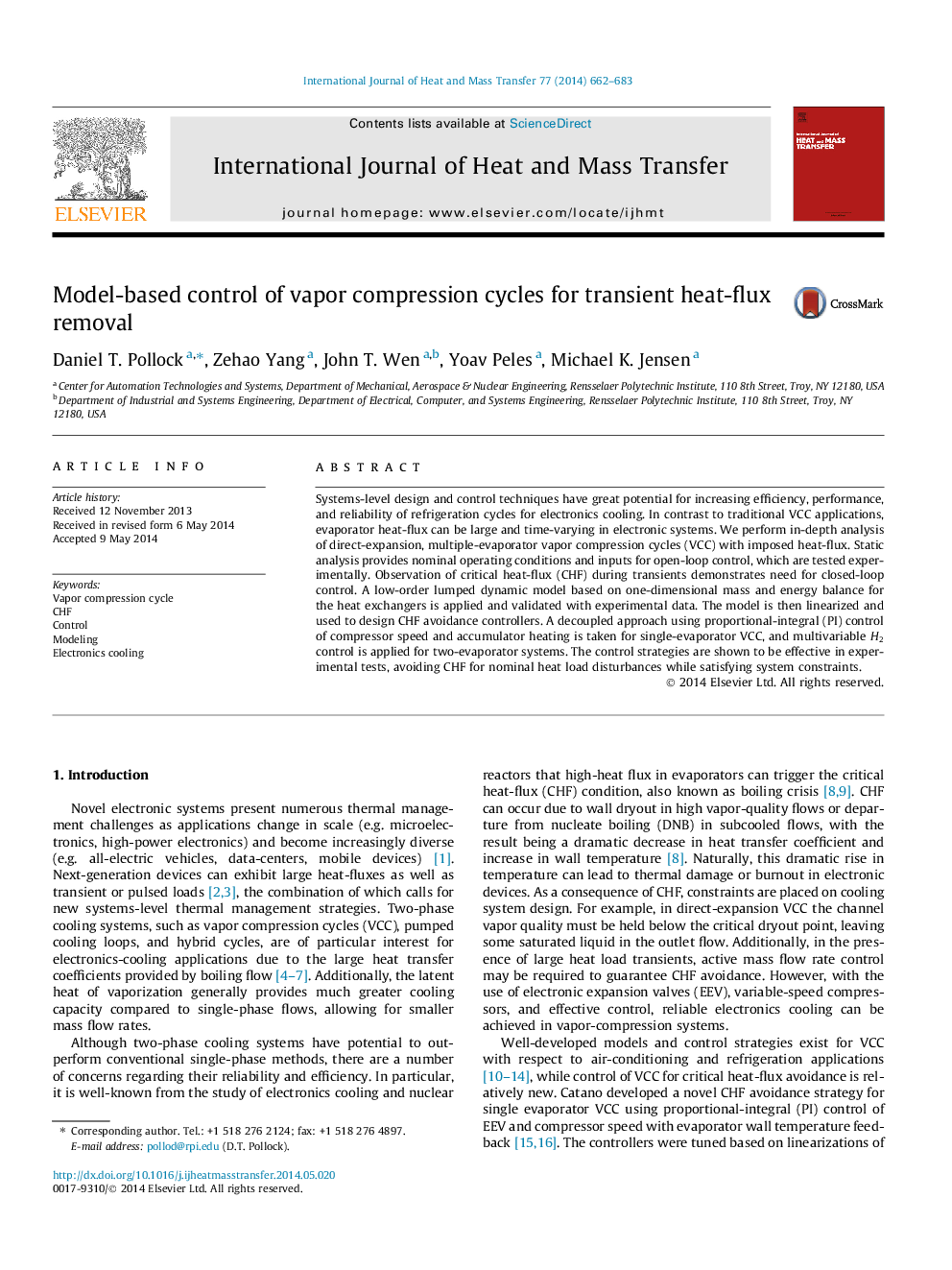| Article ID | Journal | Published Year | Pages | File Type |
|---|---|---|---|---|
| 657820 | International Journal of Heat and Mass Transfer | 2014 | 22 Pages |
Abstract
Systems-level design and control techniques have great potential for increasing efficiency, performance, and reliability of refrigeration cycles for electronics cooling. In contrast to traditional VCC applications, evaporator heat-flux can be large and time-varying in electronic systems. We perform in-depth analysis of direct-expansion, multiple-evaporator vapor compression cycles (VCC) with imposed heat-flux. Static analysis provides nominal operating conditions and inputs for open-loop control, which are tested experimentally. Observation of critical heat-flux (CHF) during transients demonstrates need for closed-loop control. A low-order lumped dynamic model based on one-dimensional mass and energy balance for the heat exchangers is applied and validated with experimental data. The model is then linearized and used to design CHF avoidance controllers. A decoupled approach using proportional-integral (PI) control of compressor speed and accumulator heating is taken for single-evaporator VCC, and multivariable H2 control is applied for two-evaporator systems. The control strategies are shown to be effective in experimental tests, avoiding CHF for nominal heat load disturbances while satisfying system constraints.
Related Topics
Physical Sciences and Engineering
Chemical Engineering
Fluid Flow and Transfer Processes
Authors
Daniel T. Pollock, Zehao Yang, John T. Wen, Yoav Peles, Michael K. Jensen,
